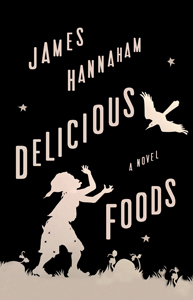Book review: Delicious foods
James Hannaham’s new novel explores slavery through a satirical lens
Share
DELICIOUS FOODS
James Hannaham
2015 has already brought forth a number of exemplary novels that examine race and culture through the lens of satire, with laser-sharp precision and dauntless energy. From T. Geronimo Johnson’s Welcome to Braggsville, an exploration of an exercise in political correctness gone horribly wrong in a Southern town, and Asali Solomon’s Disgruntled, looking at a black Philadelphian girl butting up against class constraints in whiter, richer suburbs, to Paul Beatty’s The Sellout, which takes ideas about slavery to an absurd yet necessary conclusion, these novels help us to better understand recent anguish, anger and protests, and show where we’ve gone wrong and where we can go right.
To this group, add this second novel by Brooklyn-based Hannaham. Unlike his fellow borough dwellers gazing at their navels, Hannaham has an audacious, heartbreaking story to tell, one that is intended to be allegorical, but unearths a horror that is real, and whose roots reach all the way back to slavery.
Eddie Hardison (the last name is meant to resonate) is an 11-year-old living just outside Houston sometime in the 1980s, when his mother, Darlene, disappears. She remains stricken by grief, years after the violent death by fire of her husband, Nat. As she slides further into depression and oblivion, drugs offer her easy solace and even easier addiction. When she disappears, most give her up for lost, but Eddie continues to search and discovers she’s embroiled in a nightmare.
For Darlene—thinking she was off to a better life sponsored by the agricultural company Delicious Foods—has essentially signed up to be in perpetual debt, never quite working off (with back-breaking labour) what she owes, still plied with illegal drugs, a 20th-century slave. In Darlene’s service to her employer, Hannaham brilliantly creates a metaphor for human trafficking, modern-day industrialism, the pernicious effects of the war on drugs, and society’s greedy need for “quality” delivered as cheaply as possible.
But Delicious Foods would not stay in the mind if Hannaham did not write with such heart and truth about the love Darlene has for her late husband, and that Eddie has for Darlene, and the ways in which pernicious racism tears them apart and forces them together. There are no easy rescues or fixes, but how the Hardison mother-son team survives the worst odds, again and again, is a breathtaking depiction of how difficult it is to break a spirit down, and how stubborn and resilient people can be.
